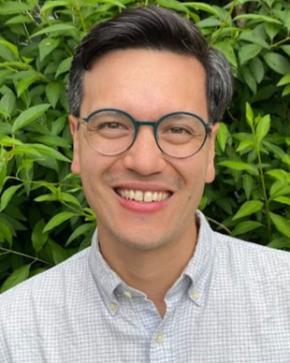Los Angeles is home to the largest jail population in the United States. The Center helps L.A. County advance supportive services to promote safe and equitable alternatives to incarceration.

Tia Strozier, Associate Director of Policy & Practice, Community Justice Team

Martin Marchiori-Wong, Program Manager, Community Justice Team

Brett Taylor, Senior Policy Advisor, Community Justice Team
Building on the community’s call for deeper investment in community-based services, Los Angeles County has extended its Alternatives-to-Incarceration Office (now the Justice, Care and Opportunities Department, “JCOD”). The office was created to invest in youth justice reforms, mental health and substance use treatment for people with criminal cases, and diversion programs, in order to build up a community-based system of care. Since 2015, the Center for Justice Innovation has worked with L.A. County to identify more opportunities to divert people who are experiencing behavioral health or substance use challenges out of the criminal justice system as early as possible.
Meet our team on the right!
Rapid Diversion Program
With support from the MacArthur Safety & Justice Challenge, the Center has worked with Los Angeles County since 2016 to reduce incarceration and racial and ethnic disparities while promoting collaborative alternatives to the status quo in the criminal legal system. In June 2019, the Center helped launch the Rapid Diversion Program, a court-based behavioral health diversion program—a first of its kind for L.A.
This program provides participants with the opportunity to receive treatment and stabilize their lives. Upon completing the program, participants have their cases dismissed. As of October 2022, over 1,000 people have accepted Rapid Diversion services; and of those who have graduated, roughly 96% have avoided future contact with the criminal system. Since its launch, the Rapid Diversion Program has expanded from one courthouse to six, in collaboration with the Justice, Care and Opportunities Department and project partners.
See RAND's 2024 report on the Rapid Diversion Program here.
Prefiling Diversion
L.A. County’s Justice, Care and Opportunities Department was created to help advance the County’s vision of "Care First, Jails Last." Since 2020, the Center has been working with the JCOD to launch and support community-based alternatives to jail.
The Center helped launch the ATI Prefiling Diversion Program in 2021. By co-locating a service provider at three police stations in Los Angeles, prefiling diversion helps people who are arrested for non-violent offenses receive social services such as referrals to housing and employment resources, as well as treatment for behavioral substance use issues, in lieu of having cases filed against them. Similar to the Rapid Diversion Program, successful completion of the program results in participants’ cases never being filed, enabling people to avoid new charges and prosecutions altogether.
Key to the "Care First, Jails Last" approach is investment in local organizations that serve underrepresented communities, especially those that support people with criminal cases. Through the Incubation Academy, the Justice, Care and Opportunities Department is building the capacity and strengthening the network of community-based organizations to serve this population by providing training, funding, and technical assistance opportunities. The Center has worked closely with Local Initiatives for Support Corporation (LISC-LA) to provide subject matter expertise and training to help prepare the providers to serve people participating in early diversion.
Partnering on Racial Equity
To promote a data-driven focus, Microsoft’s Justice Reform Initiative provides research assistance to help scale these early diversion efforts through a racial equity lens. Microsoft supports the Center as it advises L.A. on technological solutions and developing a blueprint for equitable diversion programs. Microsoft also funds the Center’s efforts to increase restorative justice in Los Angeles.
“Diversion-First” Approach to Prosecution
The Center works with the Los Angeles City Attorney’s Office to shape modern prosecution practices. As the country’s largest municipal law office, the City Attorney seeks to inspire and establish a new vision of justice for prosecutors, focused on healing for people encountering the criminal legal system. The office has developed a new unit: the Outreach and Restorative Justice Division, which promotes a “diversion-first” approach, where cases are considered for community-based dispute resolution in lieu of traditional criminal court processes. The goal is to address root causes of behavior and appropriately consider victim needs. The Center’s technical assistance supports the Outreach and Restorative Justice Division in its efforts to expand available diversion options through people-centered, healing responses in partnership with the community (e.g., as mediators and service providers).
We are a community justice organization. What is Community Justice? Find out here.

